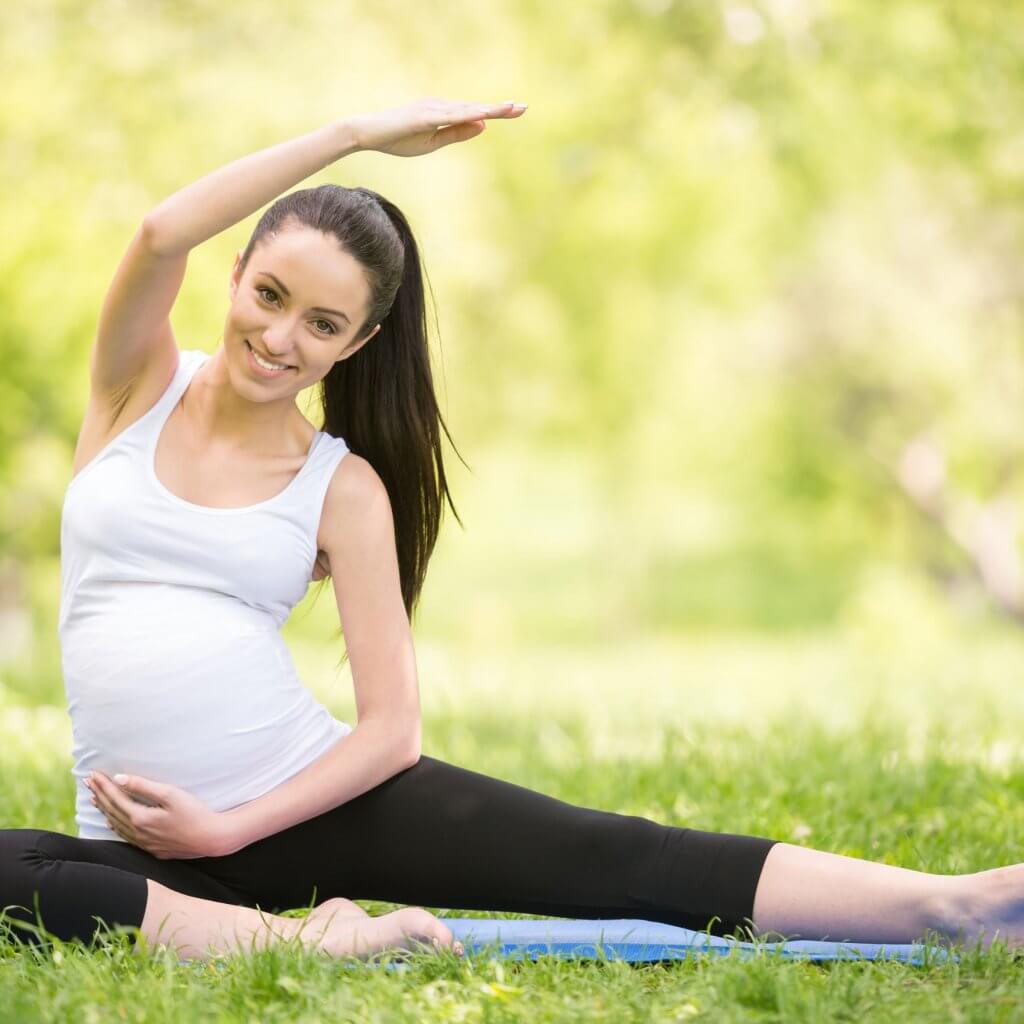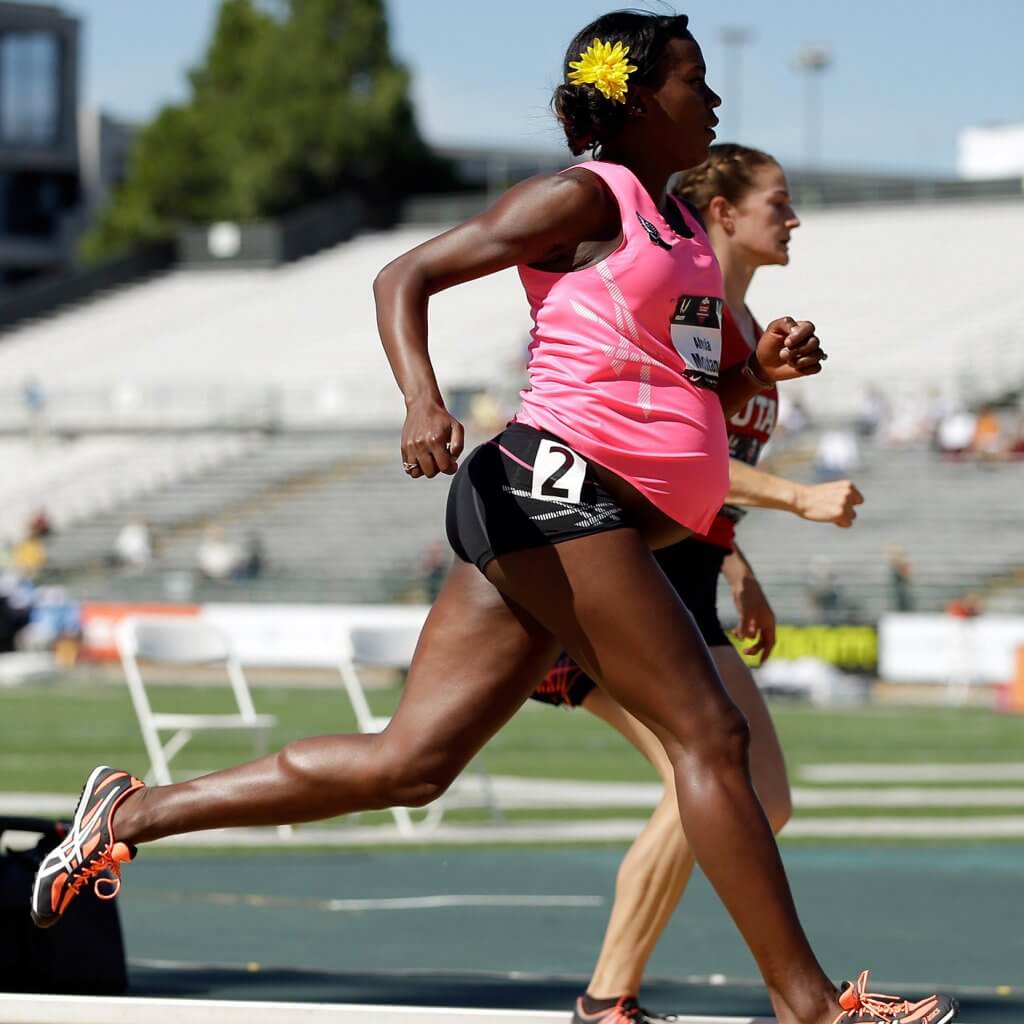Why Physical Activity is Important During Pregnancy

Pregnancy is without a doubt absolutely exhausting: the nausea, fatigue, mood swings, backpains—the list goes on and on. Sure, pregnancy is an amazing thing due to the fact that you’re bringing new life into this wonderful world, but that excitement and joy definitely comes at a price (though a price that’s most certainly worth it). Given the trials and tribulations of pregnancy, it’s understandable that you wouldn’t feel any motivation to do anything at all—especially exercise.
As it turns out, exercising while pregnant is important. You might be asking yourself “Exercise? Are you crazy?” Well, it may seem crazy, but engaging in healthy physical activity is going to make for a better pregnancy experience than you might imagine. Physical activity during pregnancy can help you with everything from your unbearable pains, post-pregnancy weight levels, quality of sleep, and an easier labor process. Of course, you’re not going to want to do any bench presses or run a marathon, but there’s plenty of physical activity and reasons to engage in physical activity in order to keep you healthy and happy—both physically and mentally.
Talk to your doctor first

Although exercise during pregnancy is beneficial for most, it unfortunately isn’t for everyone. You have to consult your doctor to see if your body is able to handle the physical activity. If you’re pregnancy is high-risk, or if with previous pregnancies you’ve unfortunately had a miscarriage, had a pregnancy where you gave birth prematurely, if you have a weak cervix, low placenta, asthma, diabetes, heart disease, or you experience any bleeding or spotting—regular physical activity isn’t going to be an option.
The Regimen
For anyone who exercises, a consistent regimen is key to reaping the benefits of staying fit and healthy; for expectant mothers, keeping a regimen is no different. Sure, the activities you’ll be doing won’t be nearly as strenuous as many exercise regimens, but you still need to stay consistent nonetheless. If you plan to exercise everyday (or at least 5-6 days a week) you’re going to want to keep your workout time at about 30 minutes. Even if you exercise about 3-4 times a week, 20 minutes of exercise will still do. Being pregnant is tough enough on the body as it is, so there’s no need to overexert yourself. The point here isn’t to get buff or in tiptop shape, the point is to simply get the health benefits.
When doing your exercises, make sure you wear loose fitting clothes (this goes for your bra as well), and you’ll want to make sure your shoes are a little loose too and that your shoes are appropriate for the particular exercise that you’re doing.
Acceptable types of exercise

You want to make sure that your exercises are all ones that are low-impact. Low-impact exercises include prenatal yoga (this one is very popular), light jogging (especially if you were a jogger before you became pregnant), brisk walking, low-impact aerobics, swimming, indoor cycling, pregnancy-appropriate Pilates, or a selection of exercises with a birthing ball.
Unacceptable types of exercise
Again, you want to make sure your exercise regimen consists of exercises that are low-impact. This definitely means no contact sports such as basketball (no flashy slam dunks), football (no crushing tackles), soccer, horseback riding, downhill skiing, softball, or mountain climbing. It seems pretty clear that these exercises are not pregnancy-appropriate, but it’s still good to know what you can or can’t do.
With any of the physical activities you decide to take part in, you also have to remember that it’s important to do exercises where your feet don’t leave the ground. This means no jumping jacks, jumping rope, or cardio dancing. It’s imperative that you don’t do any exercises that put you at risk for falling down. Any and every exercise you do should be one that keeps you on flat and level ground.
The benefits for you
Partaking in any exercise while pregnant is going to help with bloating, back pains, swelling, healthy blood flow, improved sleep, improved mood, increased energy, less weight gain (though of course you’re still going to gain weight), an easier time losing weight after the pregnancy, stronger endurance, stronger muscles, constipation, gestational diabetes (a type of diabetes that can be developed during pregnancy), leg cramps, and more.
The endurance benefit is key. The actual time of labor is going to be painful—there’s nothing you can do about that. Thankfully, given a higher endurance level that can be obtained through exercise, your endurance during the delivery process will be stronger. This can make for a quicker birth, as you’re already used to some physical activity.
The benefits for your baby

You may not have thought about this one, but physical activity during pregnancy is also good for your baby. Exercise help everyone with stress—no matter if your pregnant or not. Physical activity is an excellent way to increase endorphin levels, and also expend any pent up and excess energy. So, you might have guessed by now that physical activity helps to reduce the level of stress for expectant mothers. This reduced stress level is very important when considering the bun in the oven.
When you’re less stressed, you’re creating a better environment for the growing fetus. Recent research has shown that a healthy exercise regimen makes for the healthy growth of the body and brain of the fetus.
Think about this: Studies have shown that smoking cigarettes and drinking alcohol can be detrimental to the overall development of a fetus. If it’s important to stay away from unhealthy habits during pregnancy, doesn’t it make sense that you’d want to stay as healthy as possible for the sake of your child? When you engage in physical activity, your stress level stays at a minimum and it creates a positive and healthy environment for the fetus.
A few more do’s and don’ts
Physical activity during pregnancy is certainly going to be beneficial in a variety of ways but there’s a few things you do want to do, and things don’t want to do in addition to certain types of exercises.
One thing you definitely need to do is get the proper amount of calories. Naturally, exercise burns calories, but you still need to make sure you have enough calories and nutrients for both the benefit of your own health and the health of your growing baby.
You also have to avoid doing any exercises that force you to lie on your back. When you lie on your back, the weight of your uterus will put pressure on your vena cava—which is a major vein that helps with blood flow. If too much weight is put on the vena cava, your blood flow to your heart will be reduced, as will the blood flow to your uterus and brain. The reduction of blood flow can result in nausea and dizziness—in addition to causing you to be short of breath.
Also, make sure that you aren’t exercising in any environments that are high in heat or humidity. You’re already going to feel warmer than usual due to your pregnancy, and you definitely don’t want that level of warmth to increase. If the environment in which you exercise is too hot, you’ll put yourself at risk for overheating and your body will have a more difficult time regulating your body temperature.

You’ll know if your overheated if you begin to experience intense sweating, increased nausea or dizziness, or if you suddenly become short of breath. And of course, no matter the exercise it’s always important to drink plenty of water before and after so that you stay perfectly hydrated. This goes for anyone, but staying hydrated is especially important for expectant mothers.
You also have to make sure that you do a proper warmup. When you warmup before exercising, it’ll make sure that your joints and muscles are ready to handle the physical activity, and you’ll slowly get your heart rate going. If you don’t warmup beforehand, the activity is going to be more strenuous simply because you didn’t prepare yourself. Of course, stretching is always a great idea, but you can also just ease into whatever activity you chose to do. If you’re walking, start out slow and then pick up the pace a bit—you don’t exactly want to hit the ground running.
This one probably goes without saying, but there’s no need to overdo it. You definitely want to get exercise, but overexerting and exhausting yourself isn’t going to do any good—it’s really only going to make you feel worse, which is counterintuitive to the whole idea of physical activity in the first place.
Don’t forget, make exercising a habit. It’s not going to help you any if you just exercise from time to time. You want to get benefits throughout the entirety of your pregnancy, and a little activity here and there isn’t going to be that helpful. There’s nothing wrong with intermittent exercise, but just remember why you’re doing it to begin with.
Exercise is good for everyone, and this includes expectant mothers. It may not be as easy to partake in physical activity while pregnant, but it will undoubtedly make you feel better and ultimately more comfortable and happier. Again, it’ll be tough (pregnancy isn’t exactly a walk in the park whether you’re exercising or not) but the extra effort is certainly going to be worth it.







